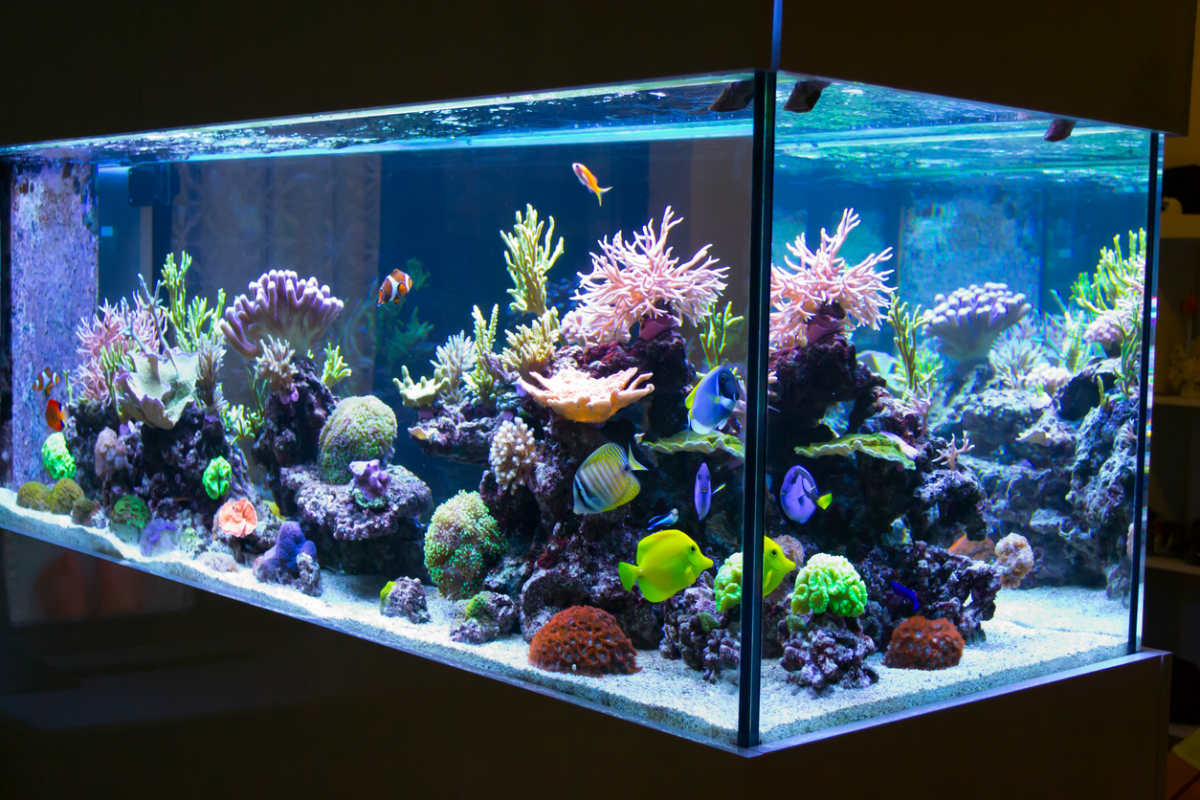Owning a fish tank can be a time consuming hobby. From researching what type of fish to get, to buying and constructing the fish tanks and assorted enclosures, to taking care of and maintaining your fish – there’s a lot to consider before making the leap.
However, maintaining a fish tank is more than just a drain on your patience, it can be a drain on your wallet too thanks to its extensive running costs. Keep reading below to see just how much you can expect to pay in energy usage to maintain your fishy hobby.
On this page:
How much does it cost to run a fish tank?
According to Canstar Blue data, a fish tank could be costing you anywhere from $53.79 to $606.14 on your electricity bill each year, depending on your tank size and features ran. The below table has calculated annual fish tank running costs based on a tank with a heater, LED lighting and pump running for various hours of the day. These figures should be taken as a guide only, but they provide a good indicator for the next time you are scratching your head after the electricity bill comes in.
| Aquarium Size (Litres) | Annual Power Consumption | Total Yearly Cost |
|---|---|---|
| 70L | 164kWh | $53.79 |
| 160L | 330kWh | $108.24 |
| 200L | 480kWh | $157.44 |
| 450L | 959kWh | $314.55 |
| 900L | 1848kWh | $606.14 |
Source: www.canstarblue.com.au – 31/10/2023. Average electricity usage rate of 32.8c/kWh based on single rate, non-solar only plans on Canstar’s database, available for an annual usage of 4,347kWh. Fisk tank assumed heater running 4 hours per day, LED lights on 12 hours per day, pump cycling tank volume 4 times per hour.
Compare cheap electricity plans for your home
Here are some of the cheapest published deals from the retailers on our database that include a link to the retailer’s website for further details. These are products from referral partners†. These costs are based on the Ausgrid network in Sydney but prices may vary depending on your circumstances. This comparison assumes general energy usage of 3911kWh/year for a residential customer on a single rate tariff. Please use our comparison tool for a specific comparison in your area. Our database may not cover all deals in your area. As always, check all details of any plan directly with the retailer before making a purchase decision.
Here are some of the cheapest published deals from the retailers on our database that include a link to the retailer’s website for further details. These are products from referral partners†. These costs are based on the Citipower network in Melbourne but prices may vary depending on your circumstances. This comparison assumes general energy usage of 4000kWh/year for a residential customer on a single rate tariff. Please use our comparison tool for a specific comparison in your area. Our database may not cover all deals in your area. As always, check all details of any plan directly with the retailer before making a purchase decision.
Here are some of the cheapest published deals from the retailers on our database that include a link to the retailer’s website for further details. These are products from referral partners†. These costs are based on the Energex network in Brisbane but prices may vary depending on your circumstances. This comparison assumes general energy usage of 4613kWh/year for a residential customer on a single rate tariff. Please use our comparison tool for a specific comparison in your area. Our database may not cover all deals in your area. As always, check all details of any plan directly with the retailer before making a purchase decision.
Here are some of the cheapest published deals from the retailers on our database that include a link to the retailer’s website for further details. These are products from referral partners†. These costs are based on the SA Power network in Adelaide but prices may vary depending on your circumstances. This comparison assumes general energy usage of 4011kWh/year for a residential customer on a single rate tariff. Please use our comparison tool for a specific comparison in your area. Our database may not cover all deals in your area. As always, check all details of any plan directly with the retailer before making a purchase decision.
What uses the most energy in a fish tank?
Fish tank electricity use is wildly dependent on a few factors:

- Lighting: Similar to regular light bulbs around your home, different types of light bulbs illuminating your fish tank can of course affect how much power you use and could consequently affect your power bill.
- Heating: The temperature you set and how long you have heating on for may see you charged more for electricity than you expect. You may also see changes in your heating costs depending on whether you are keeping tropical or freshwater fish, as these require different environments.
- Extras: Extra things like water, air pumps, UV filters and plant life alone do not consume much, but together they could add up on your next bill. Consider whether all parts are necessary before implementing them in your tank.
What can I do to reduce the energy usage of my fish tank?
If these figures have left you slightly concerned for the cost of your home fish tank then it might be time to consider some alternatives to avoid higher costs. It may be well worth assessing your heating, lighting and fixtures attached to the fish tank to see if you can opt for more energy efficient models and try to reign in the overall cost. If your keeping a larger tank than you need, it might also be time to consider downsizing, particularly if you have no plans for more fish in the future, to help keep some of those running costs down.
But for now, the next time you are shocked by your power bill, don’t let it get you down! Jump straight onto Canstar Blue and check that you aren’t missing a better deal elsewhere. Click the link below and add your postcode to get started.





Share this article